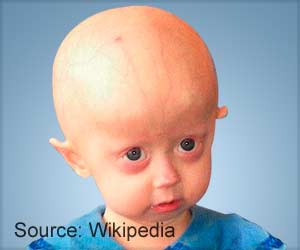The risk of death from all causes increases exponentially after the age of 40 and doubles approximately every 8 years, stated study.

TOP INSIGHT
Three of the genes affecting healthspan, HLA-DBQ, LPA, and CDKN2B, were previously associated with parental longevity, a proxy for overall life expectancy.
«According to Gompertz mortality law, the risk of death from all causes increases exponentially after the age of 40 and doubles approximately every 8 years», explains Peter Fedichev, founder and CSO of Gero. «By analyzing the dynamics of disease incidence in the clinical data available from UKB, we observed that the risks of age-related diseases grow exponentially with age and double at a rate compatible with the Gompertz mortality law. This close relation between the most prevalent chronic diseases and mortality suggests that their risks could be driven by the same process, that is aging. This is why healthspan can be used as a natural proxy for investigation of the genetic factors controlling the rate of aging, the "holy grail" target for anti-aging interventions».
To find out genetic factors associated with human healthspan, the researchers studied the genomes of 300,477 British individuals. Overall, 12 genetic loci affecting healthy life expectancy were discovered. To confirm that these results hold true for other ethnicities, they used genetic data of UK Biobank participants with self-reported European, African, South Asian, Chinese and Caribbean ancestry. Of the 12 SNPs, 11 increased risk both in discovery and in replication groups.
At least three genetic loci were associated with risk of multiple diseases and healthspan at the same time and therefore could form the genetic signature of aging. HLA-DQB1 was significantly associated with COPD, diabetes, cancer, and dementia in this study and was demonstrated to be associated with parental survival earlier. The genetic variants near TYR predict death in the prospective UKB cohort and are involved in the earlier onset of macular degeneration. The chromosome 20 locus containing C20orf112 was not associated with the incidence of any of the diseases at the full-genome level, and yet was affecting the healthspan of studied individuals.
Five healthspan-associated SNPs were also associated with a number of complex traits such as skin cancer, color of skin, eye and hair, tanning and freckles, coronary artery disease, myocardial infarction, cholesterol and glucose levels, BMI and type 2 diabetes. The researchers also found strong genetic correlations between healthspan and conditions such as obesity, type 2 diabetes, coronary artery disease, and sociodemographic factors including parental age at death, smoking and education level.
«The inevitable aging of global population calls for longevity research to focus on understanding the pathways controlling healthspan. Our study highlights the potential of GWAS methodology to delineate genetic architectures of healthspan and lifespan. We hope that our work will eventually help to produce novel diagnostic tools in the field of genetics of aging and to shape the target space for future therapeutics against aging. At the end of the day, healthspan, not lifespan, is the ultimate goal of future life-extending interventions!», concludes Peter Fedichev, the founder and Chief Scientific Officer of Gero.
 MEDINDIA
MEDINDIA




 Email
Email









